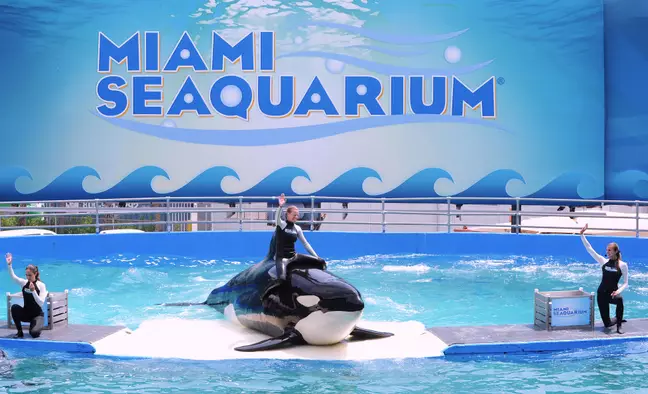The declaration of intentions to send Lolita, the killer whale who has been confined for more than half a century at the Miami Seaquarium, back to her natural habitat has sparked elation among animal rights advocates.
Having been taken from the Pacific Ocean at the age of four in 1970, the killer whale had been entertaining visitors at the Florida tourist destination for fifty years.
At present estimated to be 57 years old, she holds the title of the oldest captive killer whale and has been confined to the tiniest orca enclosure on the North American continent.
Lolita, who also goes by the name Tokitae, has experienced declining health in recent years. Her extended captivity has resulted in various health problems, such as digestive problems from consuming spoiled fish and skin infections from the water in which she was kept.
In June 2022, a third-party evaluation of Lolita's condition indicated a positive improvement in her health.
In the previous year, MS Leisure declared that they would no longer exhibit Lolita and force her to perform for spectators. With the path cleared, she can now make a genuine return to her natural habitat.
At a press conference held yesterday (March 30) at the Miami Seaquarium, Lolita's fate was revealed in the presence of Friends of Lolita, a non-profit organization based in Florida, and Jim Irsay, the owner of the NFL's Indianapolis Colts.

During the conference, it was announced that the killer whale would be relocated to the ocean. However, this process could take anywhere from "the next 18 to 24 months."
Lolita's family pod, which includes a 90-year-old orca believed to be her mother, remains active in the Salish Sea.
Given that wild orcas can live up to 50-90 years, it is imperative to act promptly if there are any aspirations of reuniting Lolita with her mother before it's too late.
Some concerns have been raised regarding the reintroduction of the orca into the wild. There are apprehensions that diseases she might have acquired during her captivity at the Seaquarium could spread to her pod, or that she could be exposed to new diseases and become vulnerable to them in the ocean.
Lolita belongs to the 'southern resident orca' category, a type of killer whale that is critically endangered, with only approximately 70 individuals remaining. These orcas were included in the endangered species list in 2005.
Upon release, it is hoped that Lolita will be able to reunite with her pod and swim in a vast expanse of water, which is incomparable to the tank she was confined to at the Miami Seaquarium.



